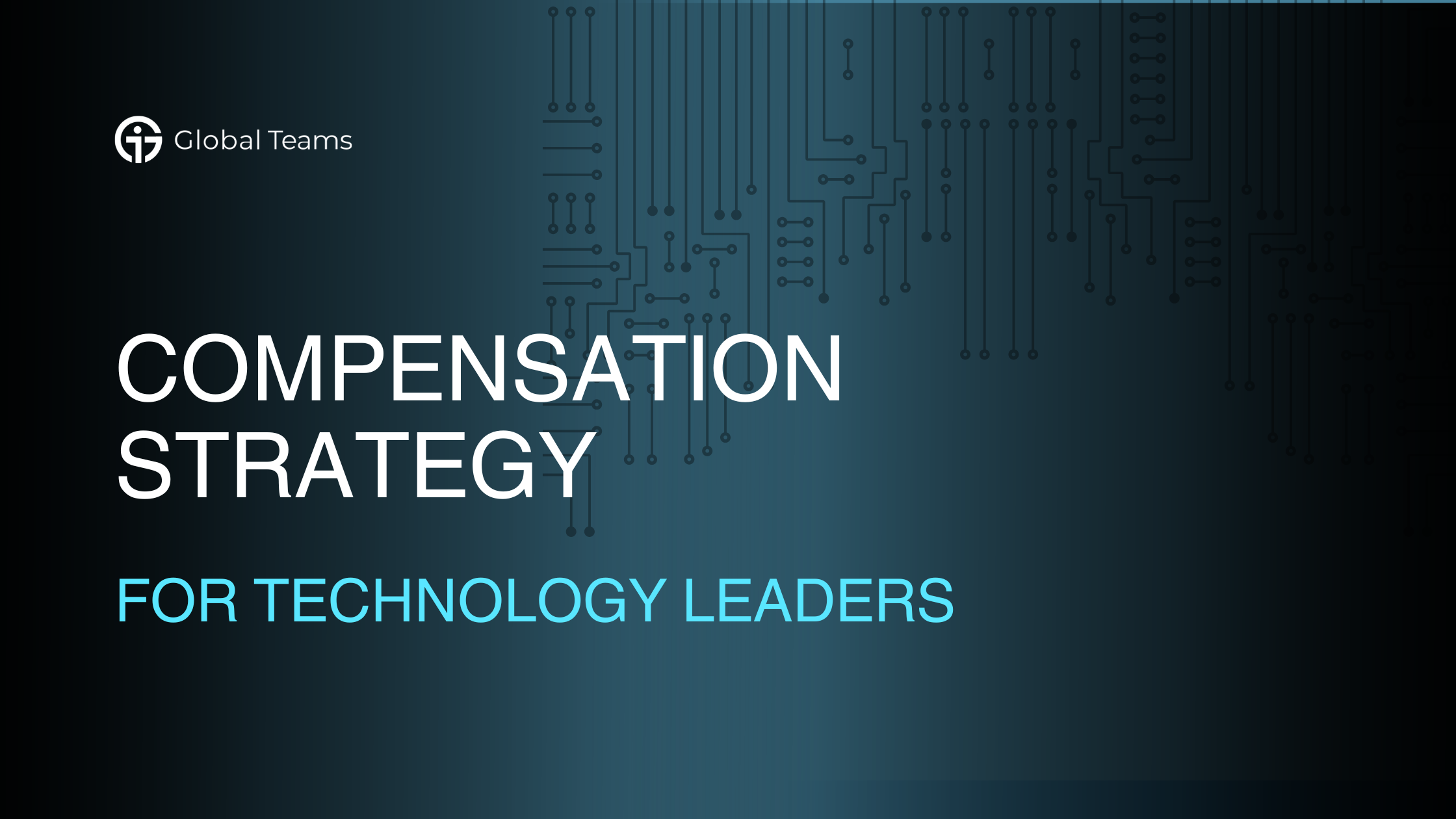Compensation Strategy for Technology Leaders

As AI accelerates and remote work dynamics change, CIOs and CTOs face new challenges in building high-performing teams. Organizations without specialized expertise may struggle to find and retain skilled workers as talent ecosystems grow more complex. One challenge many tech leaders face is hiring gaps due to unequal compensation. Today, we’ll review how your company can assemble an attractive compensation package to attract top talent.
Winning Compensation Package Components
Competitive compensation extends beyond salary. Flexible work arrangements have become highly attractive. Companies should consider implementing a range of flexible, personalized, and growth-oriented benefits that align with the evolving expectations of employees.
Flexible Work Arrangements
The perceived value of flexible work arrangements is estimated to be equivalent to 18% of an employee’s base salary, underscoring their significant impact on overall satisfaction and retention.
Because flexibility in work hours and location is a top priority, companies can attract senior developers looking for a better balance between professional and personal responsibilities. Providing these options can improve recruitment, engagement, and loyalty.
Consider meeting this demand by offering remote-first models, supported by asynchronous-friendly collaboration tools and flexible scheduling policies. Consider allowing employees to manage their workloads in a way that best fits their lives.
Skill Development Stipends
Another critical area of modern compensation is skill development stipends. Tech professionals, in particular, prioritize continuous skill growth. Whether pursuing a cloud certification, attending an AI bootcamp, or learning a new programming language, these skills expand how your team members can support your company. Additionally, development opportunities drive both retention and motivation. Employees with access to the necessary upskilling are 21% more engaged than their colleagues.
Companies can invest in skill development by allocating an annual learning budget, ensuring employees have dedicated time to utilize it effectively. In general, expect to invest between $1,500 and $3,000 per team member.
Project Completion Bonuses
Linking compensation to delivery encourages ownership and fosters a results-oriented culture. For this reason, project completion bonuses also play a significant role in retention strategies, having been shown to increase employee retention by 34%. To maximize this impact, consider designing milestone-based incentives that reward effort and successful outcomes, reinforcing a high-performance mindset across teams.
Accelerated Promotion Cycles
In addition to bonuses and stipends, companies are rethinking career advancement strategies by implementing accelerated promotion cycles. Rather than traditional 24–36 month timelines, high-performing organizations are shifting to 18-month growth pathways. This is crucial because top talent values visible career momentum. To enable faster advancement, businesses benefit by defining clear criteria for promotion and conducting semi-annual performance calibration sessions to ensure fairness and transparency.
Non-monetary benefits collectively enhance employer brand equity and help reduce total compensation costs. This creates a win-win situation for both employers and employees.
Your Compensation Strategy Is a Competitive Advantage
Skilled professionals are fielding multiple offers across borders; your compensation strategy must become a differentiator, not just a budget line item.
Operationalize Your Compensation
- Audit your current compensation offerings — How do they compare to market-leading packages in your primary hiring regions?
- Localize your strategy — Align compensation not only with global expectations but regional norms, legal frameworks, and talent preferences.
- Leverage outstaffing partners — Gain access to compensation benchmarking data, compliant employment structures, and integrated retention programs.
- Measure what matters — Track metrics like time-to-fill, offer acceptance rate, and post-hire engagement to optimize your approach continuously.
Build for Agility, Not Just Affordability
The best compensation strategies in 2025 aren’t just cheaper — they’re smarter. They’re built to adapt across borders, reward outcomes, and scale with the speed of your organization.
For CIOs and CTOs navigating hiring at the intersection of innovation and complexity, now is the time to break free from static, salary-centric thinking. A thoughtful, regionally informed, and outcome-aligned compensation model can be your greatest strategic advantage in the global tech talent race.
Global Teams specializes in connecting elite technical talent from Eastern Europe with innovative organizations worldwide. Our proprietary recruitment methodology, cultural integration frameworks, and retention-focused management enable companies to build high-performing technical teams with 40-60% cost efficiency. Schedule a consultation with our technical talent strategists to receive a custom talent acquisition roadmap.